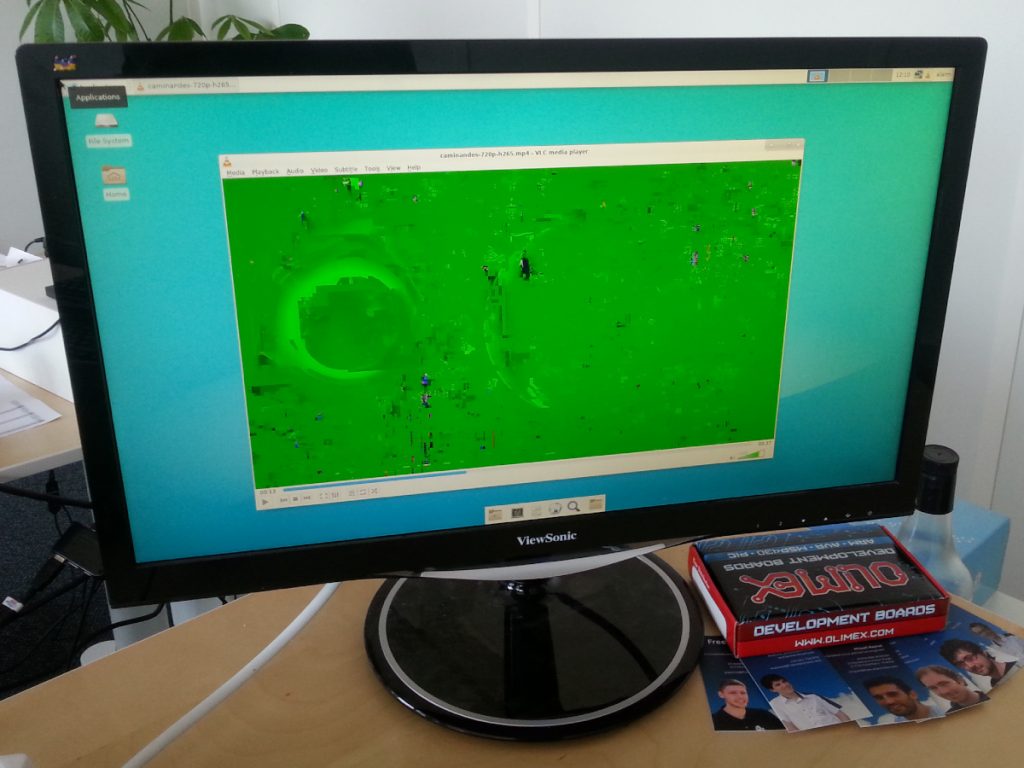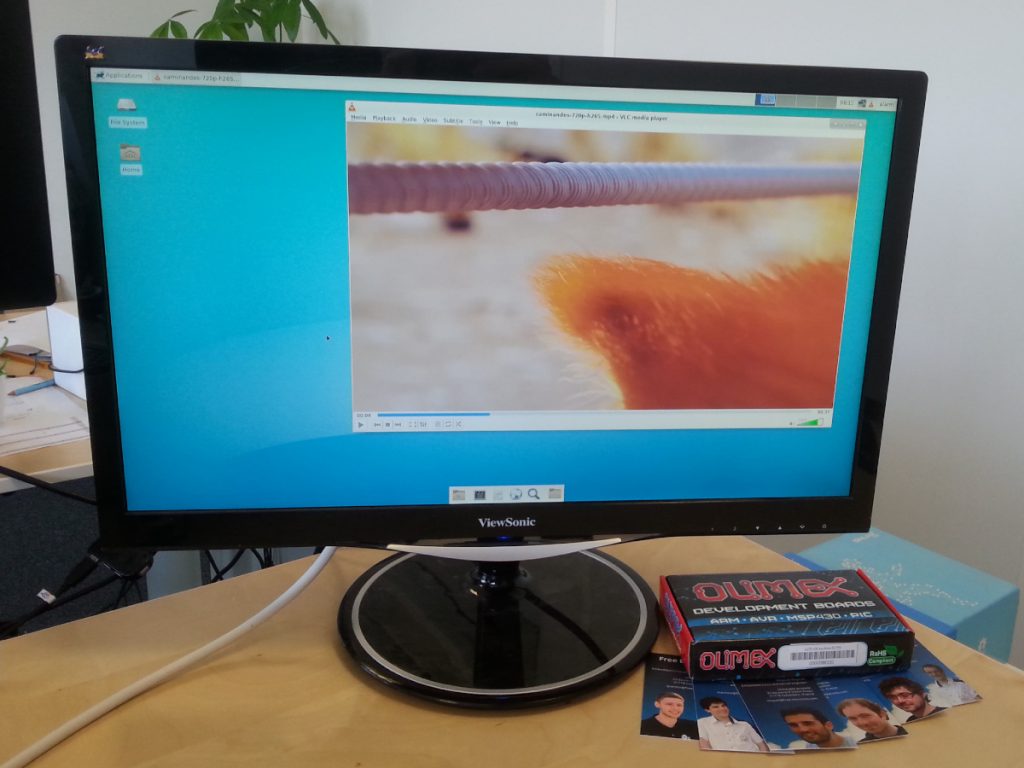This week has seen great advancements in H265 support, following up on the work conducted during the past weeks. The first item to debug was support for bi-directional predictive frames (AKA B frames) which was broken last week. This required some adaptation in our standalone test tool v4l2-request-test in order to display the decoded frames in the right order. With bi-directional prediction, the display order no longer matches the decoding order, in which the coded frames are stored in the bitstream.
With the images displayed in the right order, the debugging process was a matter of comparing the configuration register values written by our driver with the reference provided by libvdpau-sunxi, but it was not enough. A specific buffer has to be provided for each frame for the decoder to store extra meta-data related to bi-directional frame prediction. With the buffer set, the situation vastly improved and only minor issues had to be resolved.
This lead to properly decoding our reference H265 video that contains I, P and B frames! A few more videos were also tested to spot possible bugs and were eventually decoded correctly too. Of course, due to the many possible combinations of H265 features, it is possible that we are still missing some corner cases, but the bulk of H265 support is well in place at this point.
We moved on to adding support for H265 in libva-v4l2-request, which allows the integration of the codec with media players such as VLC and Kodi. We hit a few hiccups during the bringup :

But we managed to fix the integration of H265 to behave properly :

So H265 is now integrated in our pipeline and we are ready to submit the patches introducing its support for the Cedrus driver, which should come around next week.
